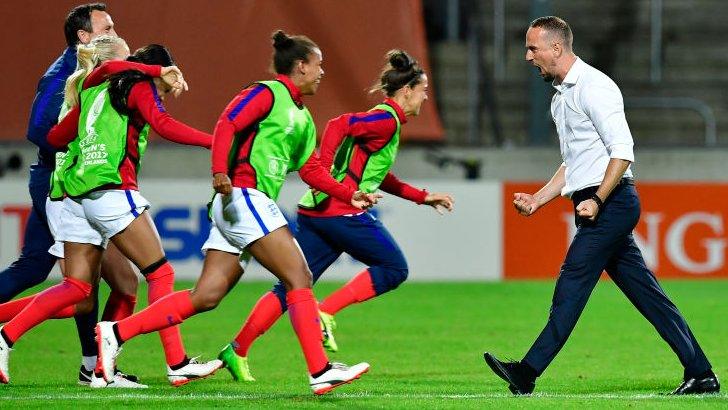Women's Euro 2017: What are the secrets of England’s success?
- Published
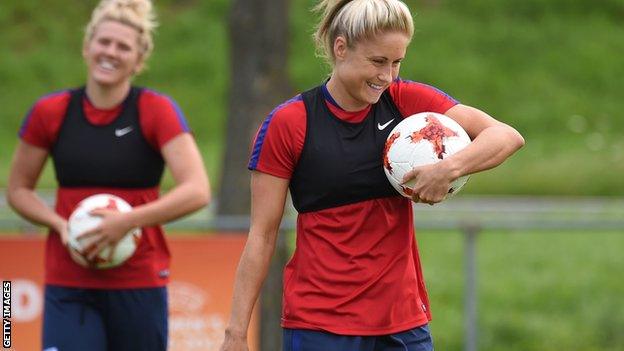
England are yet to concede a goal with captain Steph Houghton on the field at Euro 2017
Women's Euro 2017 semi-final: Netherlands v England |
|---|
Venue: Enschede, the Netherlands Date: Thursday, 3 August Kick-off: 19:45 BST |
Coverage: Listen on BBC Radio 5 live and online; live text commentary on the BBC Sport website; live on Channel Four |
England's Lionesses have captured the attention of the nation again after reaching the European Championship semi-finals, where they will face hosts the Netherlands on Thursday.
Having suffered the semi-final heartache of the 2015 World Cup in Canada, they have a chance to go one step further and even become the first senior England team to win a major tournament since the 1966 World Cup.
Taking home the Euro 2017 trophy has been a stated aim from head coach Mark Sampson and, as the highest-ranked team remaining, his team may not have a better chance of glory.
But what have been the crucial components that have propelled this England side to the brink of a major trophy once more?
An unproven head coach who steps up
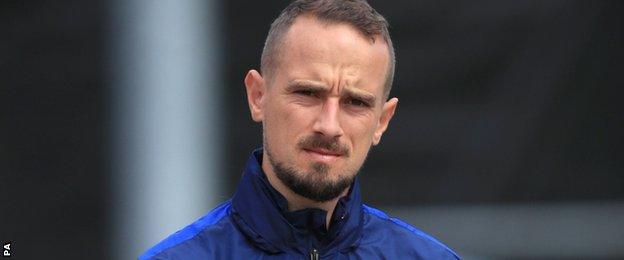
England Women head coach Mark Sampson is 34
Sampson has already become the first England boss since Sir Alf Ramsey to reach two major tournament semi-finals following the men's triumph at the 1966 World Cup and reaching the last four of the 1968 European Championship.
And the 34-year-old Welshman has revolutionised a Lionesses team that were at rock bottom after Euro 2013, where they crashed out at the group stage.
Having replaced authoritarian former boss Hope Powell after that tournament, he has been a breath of fresh air to the players, by empowering them and "treating them like adults", according to one.
He is more approachable too. Having appeared on an old episode of the BBC gameshow Pointless, the kit man recently showed it to the team during a quiz night, and they ended up laughing at Sampson as he struggled with the questions. "I didn't really understand the concept," he says sheepishly.
Yet although he had previously achieved success for Women's Super League club Bristol Academy, players were still questioning his inexperience at the start of his reign.
Despite his knack for chopping and changing the side, the bronze medal at the 2015 World Cup soon won doubters over, and he addressed long-standing psychology and fitness concerns.
Sampson is unconventional at times, choosing to name his squad three months early and his barbs towards opposition teams - accusing Spain of "dark arts" and the French manager of being "wet behind the ears" - have raised eyebrows.
He has risked his reputation, but so far he has shown that his judgement and decision-making are worthy of top-level international football.
Faith in a forgotten 'world-class' striker
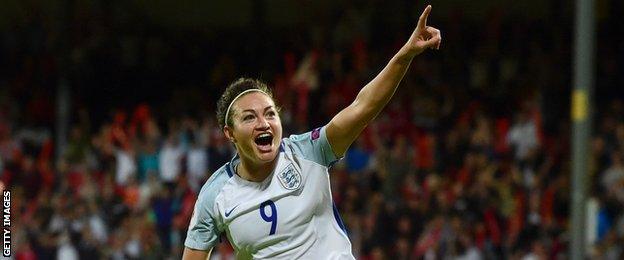
Jodie Taylor has scored five goals in three appearances so far at Euro 2017
One of the players Sampson brought in from the wilderness was Jodie Taylor, a striker ignored by Powell because she chose to play in the US where the football was of a higher standard.
Sampson soon addressed that paradoxical choice, and gave Taylor the belief she was desperate for, awarding her an England debut at the age of 28.
It would be 'awesome' to win the golden boot - England's Taylor
Sampson took another gamble, by selecting Taylor for the World Cup despite carrying a knee injury but she repaid his faith by scoring a crucial goal in the quarter-final win over hosts Canada.
And after another injury threatened to scupper her chances of making Euro 2017, Sampson still picked her despite a lack of games for her club Arsenal.
Now she is top scorer in the Netherlands with five goals, has the matchball tucked away in her suitcase after her hat-trick against Scotland and likely to win the Golden Boot, Sampson's assertion that he "always knew Taylor was world class" seems justified.
"I want to thank the medics for getting me in a good place, and Mark for still believing in me and having confidence in me because without that I wouldn't be here," she said after the Scotland win.
Making the game more professional
Highlights: England into semis with France win
After banning women's football for 50 years, the Football Association's decision to introduce a semi-professional league in 2011 was long overdue in many minds.
Backing clubs with funds to pay players allowed them to become full-time footballers, avoiding previous scenarios where they would fit training around day jobs.
The FA also awarded central contracts to England players - now at about £25,000 a year - to supplement their club income which can now reach up to £50,000 per annum.
But it is the full-time training, and the chance to rest afterwards which is the richest reward.
In 2016-17, the FA spent £14m on women's football, more than any other European association, and that means that for a squad of 23 players, there are 21 support staff at Euro 2017, including performance coaches, psychologists, video analysts, security and a chef.
That sort of budget puts pressure on the team to succeed, but so far they have delivered.
Making them mentally and physically stronger
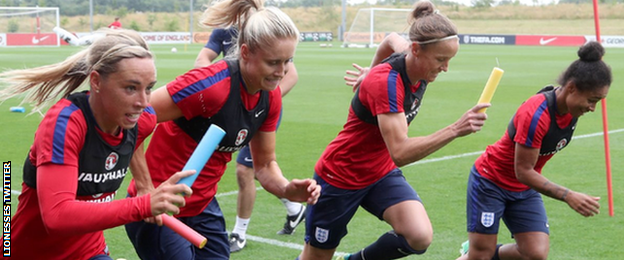
England employed a new fitness coach prior to the 2015 Women's World Cup
The route to the top of women's football has not been easy for many of the players in the England squad. Some of the older ones will tell you about coming from an era when they were laughed at for playing football, or even bullied because of it.
Then there are the personal stories. Fara Williams is England's record caps holder with 164 appearances but had periods of her life when she was homeless. Jade Moore found two holes in her heart through a routine screening but is one of the fittest players in the team, while Casey Stoney spent years hiding her sexuality yet came out in 2014 and now has twins with her partner.
Sampson tapped into this before the World Cup, showing his players that they were "street-fighters" for already reaching the top of English football, and he has used that message to inspire his players as they beat Germany for the first time at the World Cup, and France for the first time in 43 years in their quarter-final in the Netherlands.
"We do a lot of work off the pitch to bring us together," said right-back Lucy Bronze. "You don't have to be the best of friends, but have some sort of relationship, so that when you are on the pitch, you have each other's backs, no matter what."
If that was the social and psychological evolution of his team, the physical one came before Euro 2017 when a former rugby union fitness coach was brought in, encouraged them to lift weights in the gym three times a week and improved their fitness by 23%. The result? What Sampson calls the "fittest team in the tournament", and there has been little evidence to suggest he's wrong.
Desire driven by a young core
This England team is just getting started - Jill Scott
Former England goalkeeper Rachel Brown-Finnis remembers being in the tunnel for the Euro 2009 final against Germany and says the players went out expecting to lose. The result was a 6-2 defeat.
Back then, the gulf between the two teams was immense.
But this England team is driven by a core of younger players who won the Under-19 European Championship together in 2009, including Bronze, Jordan Nobbs, Jade Moore and Toni Duggan.
And Bronze has hinted that they have had to breathe confidence into the more senior players, who may have been scarred by past experiences.
"The older players have more to be confident about," said Bronze. "I just don't think they realise it."
For her, glorious failure in the semi-final is not an option. "We definitely haven't achieved anything yet," she said. "Our expectation coming into the tournament was that we would reach the final and come home with the trophy. If we were to lose, we would be devastated."
Are England favourites?
England can win Euro 2017 - Jordan Nobbs
Based on their world ranking, England are clear favourites as their position (fifth) is seven places above the hosts (12th), 10 above Denmark (15th) and significantly higher than Austria in 24th.
They beat the Netherlands 1-0 last November, and in the Euro 2009 semi-final. And the Lionesses earned recent wins over Denmark (2-1) in June and Austria (3-0) in April.
In some ways it is England's to lose, but Brown-Finnis spins it the other way.
"This is England's to win now," she told BBC Sport. "Some might say that brings its own pressure but that is not affecting this team. They are not playing with hope or ambition, they are playing with a belief that they will win."
- Published3 August 2017
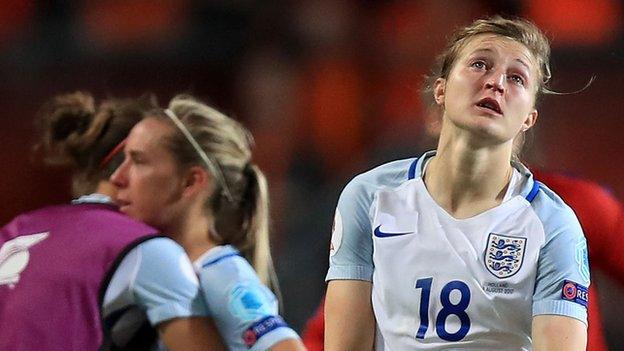
- Published2 August 2017
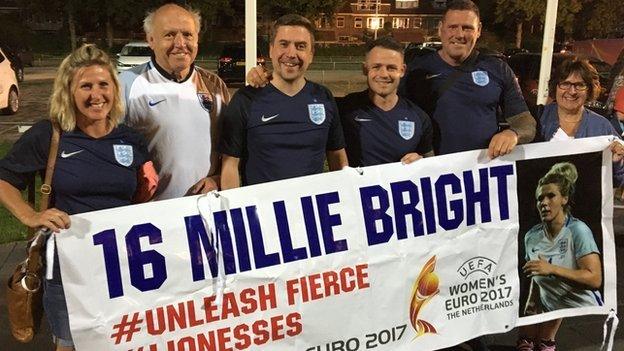
- Published31 July 2017
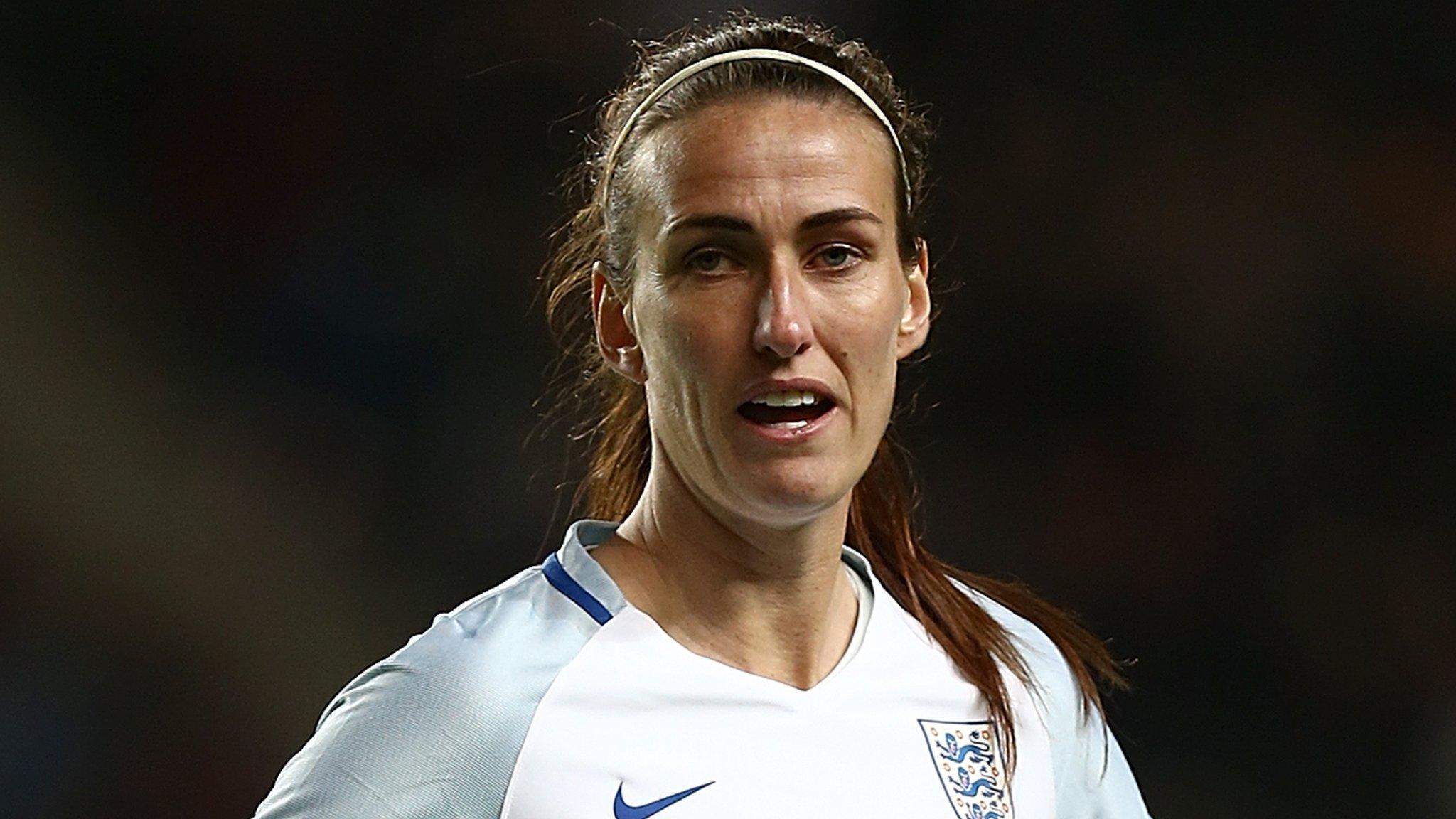
- Published31 July 2017
